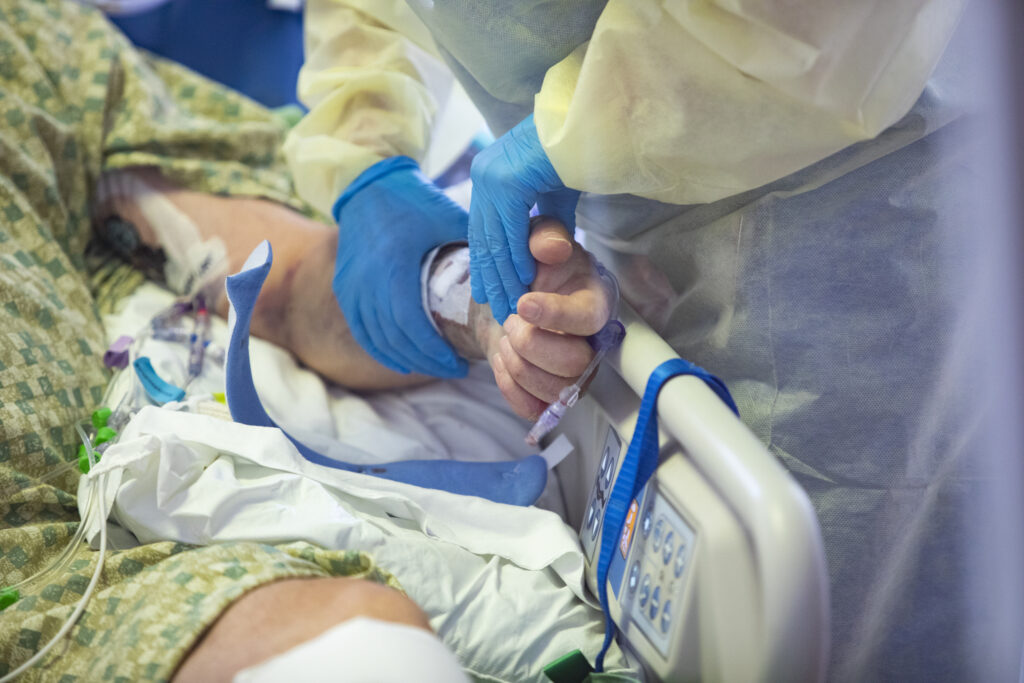“You can’t win ’em all, kid.”
These words were said to me as I left the operating room. The expression on his face was one of defeat and disappointment. The tone of his voice was strained. It was the last operation of the evening and he was not able to successfully pass an artificial lens into the patient’s eye. When I met with him again the next day, he explained that there will always be failures as a surgeon. At the time I was a third year pre-medical student and this was my very first time shadowing a doctor. I was eager and excited to be in an operating room and witness all the action—but never did I expect someone that I admired so deeply to have a moment of weakness in front of me. I walked away that night with an even greater level of respect for him than I had initially. His attitude regarding his failures was one of acceptance, not deflection or avoidance. Two years later, I firmly believe this story contains an invaluable lesson: doctors should be allowed to fail.
Society tells us that good doctors don’t fail. We have all heard of the horror stories involving physicians that operated on the wrong limb, missed a life-threatening diagnosis or dropped a baby after a delivery. We often equate human error and failure as being synonymous with negligence. This may be true in certain circumstances. In other situations, however, inevitable human error, surgical complications or other unforeseen issues are behind poor patient outcomes. The current climate of medicine attempts to solve this problem by encouraging physicians to strive as close to perfection as possible, not taking into consideration that every human task will contain marginal errors.
Perfectionism or an inability to accept defeat will not change this. This is not to say that reduction of error should not be the overarching goal to increase patient safety. In fact, American surgeon and writer Atul Gawande argues in his book, “Complications”, that the culture of fear and silence in the medical community surrounding mistakes, along with the “bad physician” theory, leads to an inability to facilitate good conversations surrounding possible solutions to human error in medicine. He argues in his book that Mortality and Morbidity conferences, which are weekly meetings held at academic hospitals aimed at discussing recent medical errors, emphasize individual error but does not allow them to be seen as a failure of a process or system. To improve the systems and procedures that lead to better patient outcomes, there must first be an acknowledgment that these mistakes will happen as a matter of when—not if. Perfection is simply not an effective tool of prevention.
This anti-failure culture has deep roots in the premed years. In the earlier years of my time in college, I was often surprised by the intensely competitive and cutthroat environment, an environment that was often cultivated and allowed to thrive by science professors. There was tension and palpable animosity that I observed between students as I made my way through my pre-requisite classes. There was little room for error if medical school acceptance was the goal, I was always told by professors and advisors. Students attempted to be the best and the brightest out of everyone, and with this came the assumption that their classmates are fierce competition.
Characters of a good physician include teamwork, humanity, compassion, self-sacrifice and altruism. This is the type of culture that should exist instead of an obsession with competition and perfection. If we desire to train a generation of exemplary physicians, they should understand that part of science is failure—and that egos have no place in medicine. The development of these positive character traits must start in the pre-med years and should be emphasized by every science professor, medical school admissions counselor, and academic advisor just as much as GPA and MCAT scores. Being a good physician is more than simply how well you can perform in organic chemistry. It is also how well you can navigate the difficult situations and failures that are bound to happen.
I once talked about these perspectives in a class speech that I gave. A student interrupted me. Perfectionism is a good thing, he argued. His perfectionistic drive gave him the motivation to get things done and to do them right. Why would anybody want a surgeon operating on them that is not a perfectionist?
It sounds like a logical point. Most people feel this way and I would agree that healthy forms of perfectionism can positively affect work ethic. This does not solve the underlying problem. Attempting to be perfect diverts attention away from real solutions. So long as humans are performing a task, there will always be errors. Studying for an exam for hours on end can help increase your score—but this does not mean that you will receive a 100 on every exam.
A doctor can prepare meticulously for an operation, but this does not take away from the fact that there could be complications, unforeseen issues, and human errors that take place. Perfecting a system or procedure to better patient outcomes requires a level of submission and humility in what you do not know—and like the ophthalmologic surgeon that I shadowed, a level of acceptance in failure, with the overarching goal of developing solutions to these failures.
You may also like
-
Mystery Science Theatre – A Night of Friends and Food
-
Lily Cone Becomes First Ever UWG Idol
-
From Graduation to Career: The Flexibility of UWG’s Online Master’s Programs
-
Worlds Far Away and Friends Close By: The UWG Sci-fi Club
-
Experiential Learning Helps Students Prepare for the Future through UWG’s bluestone.
